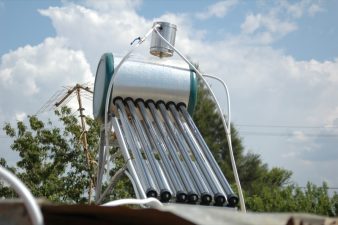 Rola asks why the Middle East is consuming so much bottled water. Time to fix the tap?
Rola asks why the Middle East is consuming so much bottled water. Time to fix the tap?
In his recently released book, The Big Thirst: The Secret Life and Turbulent Future of Water, Charles Fishman explains that while the US has among the safest, most monitored water system in the world, consumers are still choosing bottled water over using a faucet that dispenses potable water.
The same paradox applies for most countries in the developed world as they continue to pay for something they can get for close to free. The situation is different for most consumers in the Middle East and North Africa, where clean safe water often only comes in bottles. But does it have to be that way?
The bottled water business is huge, and growing. According to the latest Beverage Marketing Corporation, bottled water accounted for more than 29 percent of total volume of liquid refreshment beverages in 2009 with the global rate of consumption increasing by 2.7 percent in 2009.
Although the US is the single-largest national market in terms of volume, just about everywhere else in the world the segment is sizeable and expanding. The same report shows several Middle Eastern markets ranking on top of the list in terms of per capita bottled water consumption.
With the equivalent of more than 40 gallons for each resident in 2009, the United Arab Emirates has the third-highest level of bottled water consumption per capita in the world. In addition to the UAE, Lebanon (31 gallons per resident) and Saudi Arabia (28 gallons per resident) are in the top 20 in per capita bottled water consumption. At 20 gallons per resident, Israel also consumes bottled water at a rate greater than the global average.
This may come as no surprise for a “hyper-arid” region where rivers are few, populations increasing, and underground reserves shrinking fast. According to UN reports, the Arab counties collectively contains 1.1 percent of global renewable freshwater for a total of 4.6 percent of the world’s population. In addition, although not all countries in MENA are poor, there is a general lack the infrastructure and resources to deliver potable water, so that even rich countries like Saudi Arabia buy bottled water as a necessity.
The environmental strain
The industry may be good business for multinationals but transporting bottled water long distances involves burning massive quantities of fossil fuels. Nearly a quarter of all bottled water crosses national borders to reach consumers, transported by boat, train, and truck. In 2004, for example, Nord Water of Finland bottled and shipped 1.4 million bottles of Finnish tap water 4,300 kilometers from its bottling plant in Helsinki to Saudi Arabia.
Fossil fuels are also relied on in the packaging. The most commonly used plastic for making water bottles is polyethylene terephthalate (PET), derived from crude oil. After the water has been consumed, the plastic bottle disposal adds more strain to the environment as most empty bottles end up in landfills or on the roadsides taking centuries to biodegrade. Incinerating used bottles is also not a solution as combustion produces toxic byproducts such as chlorine gas and ash containing heavy metals.
The alternative
With increasing population and diminishing supply of secure fresh water in the Middle East and North Africa, the problem of access to clean affordable drinking water will only get exacerbated, mostly among the poor. However, even for the wealthy GCC countries, bottled water is not a sustainable solution to the problem of often-unsafe tap water found in these countries.
As reported in Green Prophet in the past, while desalination plants are effective at producing a fresh water supply from salt water, they are very costly and energy intense. Other less expensive and more environmentally sustainable ways of providing fresh water are required.
Several reports have identified long term alternatives such as investing in improvements of existing water treatment systems and cleaning up municipal water supplies. On the demand management side, conservation is required to address the over-usage of domestic water across the region. Local water demand management can help shift a sense of ownership and responsibility towards drinking water to consumers who in many cases now are paying a fraction of what the cost they are actually consuming.
Improving fresh water supply through an energy-efficient infrastructure and introducing new water demand management systems require a holistic approach that will be both challenging and costly. But compared to the economic and environmental cost spent each year on buying, transporting and disposing of bottled water, it would be a sound long-term investment for governments across the region.
Read more on water in the Middle East:
Auja Is Creating Liquid Peace in Palestine
Saudi Arabia to Replace Oil with Sun Power for Desalination Plants
Clean Tech Incubators from Israel and California Sign Water Deal
How Israel’s NewTECH Is Watering The Economy



Although technically most of these bottles are easy to recycle, the motivation to recycle is missing so most people just through them away with trash headed to landfills.
We have a better solution which helps save children’s lives in developing countries & our package is easier to recycle.
$0.95 of every dollar goes directly to clean drinking water projects.